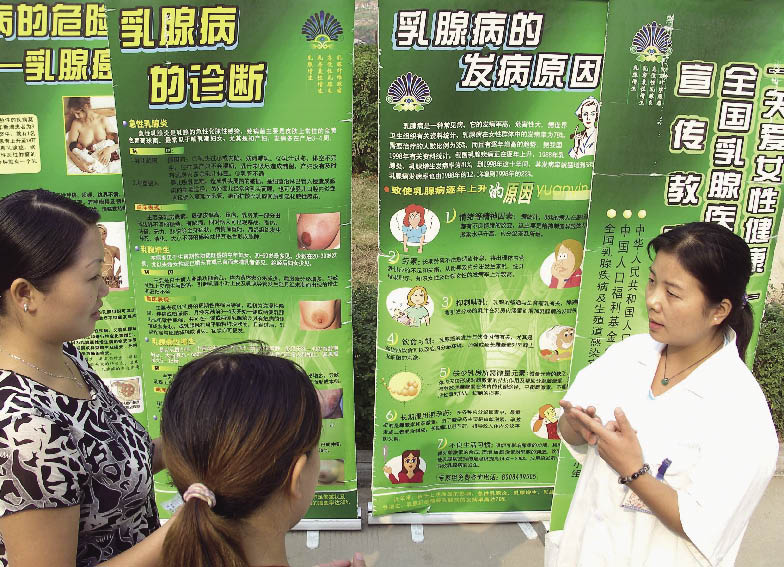|
Disputes between Hanghua and an equipment supplier and a designated hospital have also drawn CACA into lawsuits.
At the end of 2007, the CACA leadership was re-elected as office holders’ terms expired. Hao Xishan, head of Tianjin Medical University, replaced Xu Guangwei as CACA chairman. Professor Zhang Guangchao, current secretary general of CACA, says: “Professor Xu Guangwei started the project with very good intentions. However, he is only an expert in the medical field. He made mistakes related to the project’s management.”
“In Taiwan, it is impossible to let business activities mix with breast cancer screening,” says Professor Zhang Jinjian of the College of Medicine at the Taiwan University. “As for conducting breast cancer screening, the government needs to support and offer quality management and assessment.” Since July 2002, women aged 50-69 in Taiwan have had the opportunity to take a free breast cancer screening examination. At present, various institutions in Taiwan are organizing over 10,000 people to take part in a large-scale clinical experiment, the results of which will help decide if the threshold age for receiving free examinations should be lowered to 40.
However, the stagnant mainland-screening project did have some positive outcomes. According to Chang Guisheng, 40 designated hospitals for this project examined 120,000 women. Hundreds of cancer sufferers were detected, mostly at early stages.
The Government Takes Over
After ending cooperation with Hanghua, Xu Guangwei came to understand that government support is crucial in breast cancer screening. Fortunately the Chinese government has gradually realized the importance of cancer prevention. With the Ministry of Finance’s support, the Ministry of Health conducted some examination projects in certain areas in order to detect early-stage tumors. However, these projects did not start with breast cancer screening, but with cervical cancer and carcinoma of the esophagus.
 |
| A medical worker of Yichang City, Hubei Province, explains breast cancer prevention during a nationwide campaign "Care about Women's Health." |
In March 2008, a project named “breast cancer screening supported by central funds” was finally initiated, carried out by CACA. The project planned to offer free breast examinations to 530,000 women aged 35-69 in 53 counties (districts) around the country. The central government allocated RMB 19.38 million for the program.
Professor Chen Kexin of the Tumor Hospital attached to Tianjin Medical University says that this time many domestic experts were invited to discuss the examination method and to supervise and periodically reassess it. She also indicates that project organizers are hoping to widen participation to 600,000 women, or about 20,000 women from each province.
Local governments of some economically developed areas have also started to invest in breast cancer prevention. For example, the “Double Ribbon” activity has been initiated in Beijing, offering free cervical and breast examinations for women within a certain age range. Chaoyang, Xicheng and Huairou districts are the initiative’s experimental areas. Over the next year, the Beijing municipal government will expand the program to include the entire city.
Xu Guangwei has never given up his efforts related to breast cancer screening. He has helped establish a fund especially for breast cancer prevention and treatment. “The operation of our foundation will be fully transparent and the foundation is only for the public’s welfare,” he says with a deep feeling.
(Source: Caijing magazine)
| 